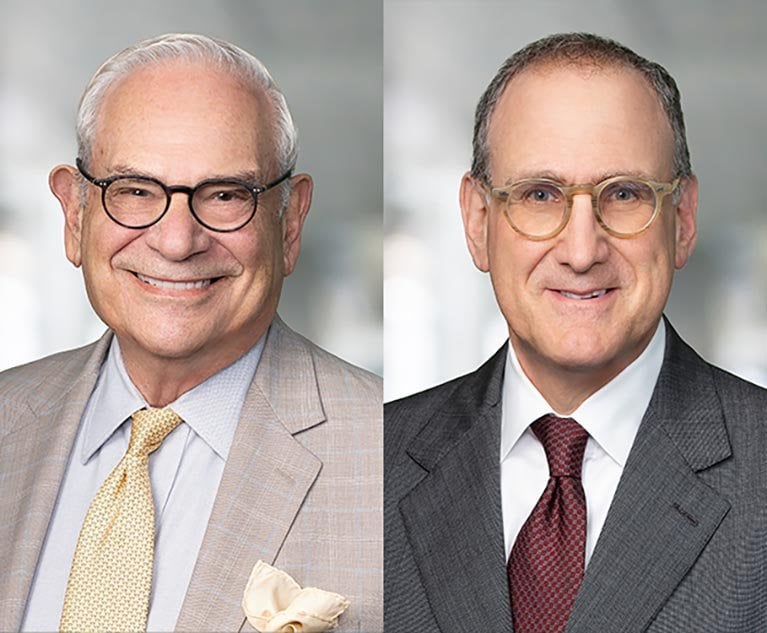Jonathan Sack

January 09, 2025 | New York Law Journal
Up in the Air: Boeing’s Deferred Prosecution Saga ContinuesThe authors write "Corporate deferred prosecution agreements (DPAs) have become a key part of white-collar criminal enforcement. With a DPA, a company can resolve a criminal investigation without a guilty plea, while the government gets remediation of misconduct and a corporate admission of wrongdoing. These benefits have encouraged other countries to adopt, or consider adopting, similar arrangements, even where DPAs do not fit neatly in existing criminal procedures, such as France, England and Switzerland."
By Elkan Abramowitz and Jonathan Sack
11 minute read

October 31, 2024 | New York Law Journal
Who in the Federal Government Is Bound by a Plea Agreement?This article discusses targets of white-collar crimes. "If a defendant enters into a plea agreement with that office, what is the binding effect on other districts? Does the defendant get complete closure, or is the defendant exposed to possible prosecution by another office?"
By Elkan Abramowitz and Jonathan Sack
10 minute read

July 08, 2024 | New York Law Journal
Supreme Court Agrees To Decide Another Mail/Wire Fraud QuestionThis article describes different approaches taken to a "fraudulent inducement" theory of liability by contrasting the Third Circuit's decision in 'Kousisis' with the Second Circuit's different approach. It concludes with observations on the potential significance of a Supreme Court ruling that further limits the scope of mail/wire fraud.
By Elkan Abramowitz and Jonathan Sack
10 minute read

May 02, 2024 | New York Law Journal
When Is a Campaign Contribution a Bribe?Campaign contributions can reflect genuine support for a candidate's positions and appreciation for ordinary aid to constituents. They can also become a bribe—that is, part of an illegal quid pro quo for political favors. What should the test be for deciding when a campaign contribution turns into a bribe?
By Elkan Abramowitz and Jonathan Sack
11 minute read

February 29, 2024 | New York Law Journal
Supreme Court To Decide Scope of Key Federal Corruption StatuteSection 666 of Title 18 has become one of the most important legal tools used in the federal prosecution of state and local corruption. It will soon be taken up by the Supreme Court. This article discusses another important federal anti-corruption statute, 18 U.S.C. §201. It then describes the competing interpretations of Section 666 and concludes with comments on the implications of a Supreme Court decision in 'United States v. Snyder'.
By Elkan Abramowitz and Jonathan Sack
10 minute read

January 11, 2024 | New York Law Journal
Second Circuit Analyzes Contours of Bribery in Bank Corruption CaseBribes and kickbacks of public and private officials in the United States are still prosecuted under the mail/wire fraud statutes and the Hobbs Act, but departures from paradigmatic cases have become more vulnerable to challenge. The Second Circuit's recent affirmance in the case of a bank officer convicted of corruption is noteworthy when viewed against that backdrop.
By Elkan Abramowitz and Jonathan Sack
11 minute read

July 20, 2023 | New York Law Journal
Varsity Blues: First Circuit Overturns College Admissions Scheme Convictions—Part TwoIn May 2023, the U.S. Court of Appeals for the First Circuit set aside the convictions of two individuals in the government's high-profile "Varsity Blues" prosecution of fraud and bribery in the college admissions process. In part one of this two-part series, we addressed the court's holding that the government charged an improper "hub and spoke" conspiracy, which resulted in an unfair trial due to the admission of irrelevant prejudicial evidence against defendants. In this article, we address the court's bribery and fraud rulings.
By Elkan Abramowitz and Jonathan Sack
10 minute read

May 02, 2023 | New York Law Journal
The Justice Department's Corporate Enforcement Policy: What's Really Changed?In this article, authors Elkan Abramowitz and Jonathan S. Sack analyze a recent DPA and related remarks by Criminal Division leadership, which shed light on how prosecutors will deal with companies with aggravating factors, such as prior misconduct.
By Elkan Abramowitz and Jonathan Sack
10 minute read

January 25, 2023 | New York Law Journal
'U.S. v. Benjamin' Sheds Light on Tangled Federal Bribery LawWe are sure to see public corruption cases brought in the future. We are also sure to see continued challenges for prosecutors and courts, and perhaps opportunities for defense counsel.
By Elkan Abramowitz and Jonathan Sack
10 minute read

November 01, 2022 | New York Law Journal
'Ruan v. United States' Reinforces Importance of Mens Rea in Federal Criminal LawIn this edition of their White-Collar Crime column, Elkan Abramowitz and Jonathan Sack first analyze the majority and concurring opinions in 'Ruan'. Next, they draw a parallel with the law relating to a reliance on counsel defense. They conclude by suggesting how 'Ruan' might be applied in other contexts.
By Elkan Abramowitz and Jonathan Sack
10 minute read
Trending Stories
- 1Public Notices/Calendars
- 2Wednesday Newspaper
- 3Decision of the Day: Qui Tam Relators Do Not Plausibly Claim Firm Avoided Tax Obligations Through Visa Applications, Circuit Finds
- 4Judicial Ethics Opinion 24-116
- 5Big Law Firms Sheppard Mullin, Morgan Lewis and Baker Botts Add Partners in Houston



